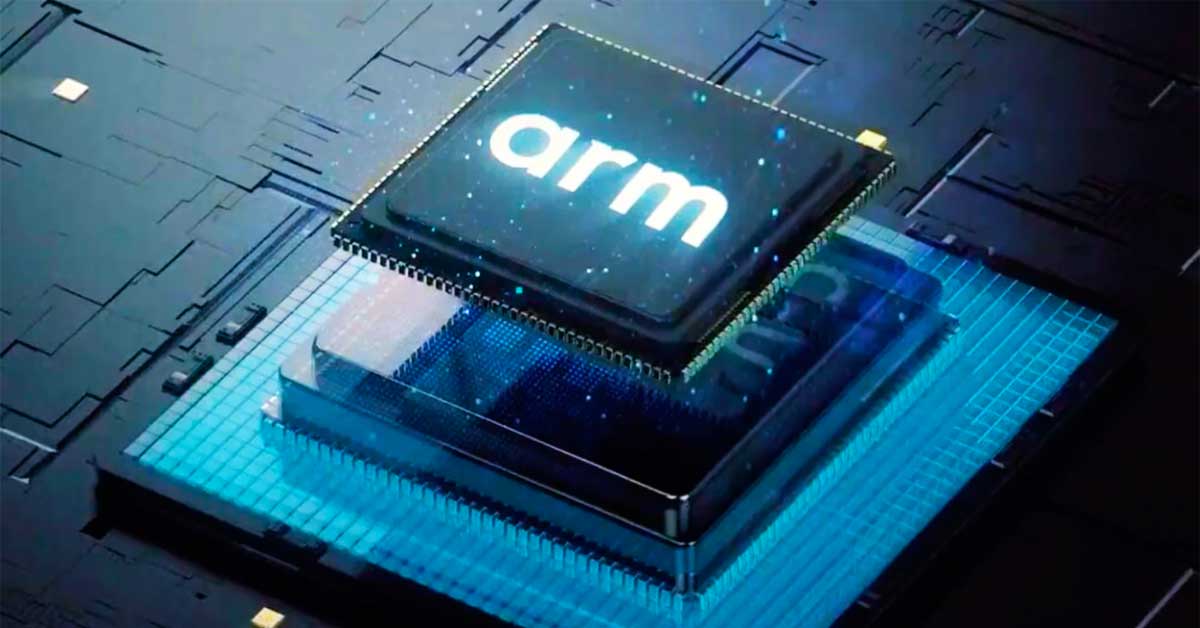In a bold move that reverberates across the mobile industry, ARM has announced its groundbreaking lineup of exclusively 64-bit CPU core designs. This development is a warning to Android phone manufacturers still clinging to outdated 32-bit technology. The new cores, including the Cortex-X4, Cortex-A720, and Cortex-A520, are poised to redefine the future of Android devices.
ARM's Cortex-X4 stands at the forefront of its new lineup, boasting exceptional performance gains and unparalleled power efficiency. With a 15% increase in performance and a remarkable 40% reduction in power consumption compared to its predecessor, the Cortex-X4 is primed to revolutionize flagship phones. Expect faster app launches, a more responsive interface, and potentially improved battery life for gaming and resource-intensive tasks.

Continuing the legacy of its predecessor, the Cortex-A720 is a central core designed to optimize longevity while delivering commendable performance. ARM proudly claims that the A720 offers over 20% more power efficiency than last year's model. Additionally, chipmakers can implement a smaller 'entry' version of the A720, which allows for cost reduction and hardware miniaturization without compromising its impressive capabilities.
While primarily intended for low-demand duties such as background processing, the Cortex-A520 showcases remarkable efficiency improvements. This efficiency core boasts a 22% increase in efficiency over its predecessor, the A510 while delivering an 8% performance boost. The Cortex-A520's advancements ensure that even moderate users can experience extended phone longevity and enhanced performance.
ARM's latest lineup doesn't stop at CPU cores. The company has also introduced a triumvirate of next-generation GPU designs: Immortalis-G720, Mali-G720, and Mali-G620. These GPUs promise enhanced performance and reduced power consumption, bringing a whole new level of visual experience to mobile devices. Notably, they introduce a deferred vertex shading (DVS) pipeline that significantly minimizes bandwidth requirements. The result? More intricate scenes and stunning HDR visuals without sacrificing performance.
The Immortalis-G720 steals the spotlight with an average 15% performance leap over its predecessor while simultaneously operating with 15% greater efficiency. This cutting-edge GPU supports a minimum of 10 cores, providing ample power for resource-intensive applications. On the other hand, the Mali-G720 offers support for six to nine cores, striking an excellent balance between performance and power consumption. Lastly, the budget-friendly Mali-G620 caters to more cost-sensitive devices with a maximum of five cores.
While ARM has not disclosed specific customers, it is anticipated that industry giants such as Qualcomm, MediaTek, and other major players will adopt the new Cortex designs as a foundation for their upcoming system-on-chip (SoC) models. However, the influence of these cutting-edge designs on Apple's usage of ARM and their potential adoption of the newer ARMV9 architecture remains uncertain.
Nonetheless, it is undeniable that ARM's latest offering will have a significant impact on the Android market. Despite Apple's early abandonment of 32-bit technology with the release of iOS 11 in 2017, Android brands, particularly Chinese manufacturers like Oppo and Xiaomi, need to transition faster. The arrival of ARM's exclusive 64-bit cores now places these companies at a crossroads. Either they upgrade to pure 64-bit SoCs or risk being left behind in an increasingly competitive landscape.

With ARM paving the way for next-generation SoC models, industry leaders like Qualcomm and MediaTek will likely adopt these groundbreaking designs. As a result, Android phone manufacturers must embrace the shift to 64-bit technology or face the consequences of falling behind. As the mobile landscape evolves, ARM's contributions are poised to shape the future of Android devices, ensuring improved performance, power efficiency, and an enhanced user experience for years to come.
Source: arm.com / community.arm.com













